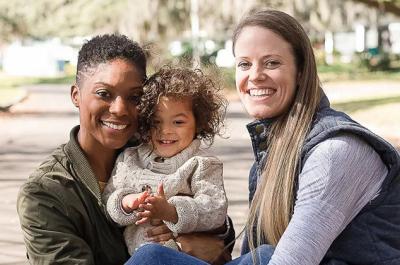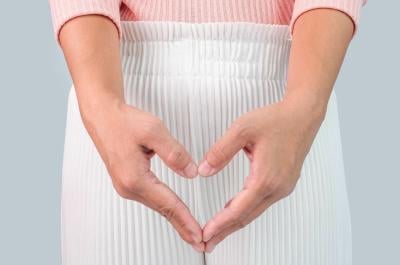Let’s Talk about Early Pregnancy Loss

Early pregnancy loss — and the grieving of what could have been — can be devastating. Often the grief is quiet and lonely, especially if few people knew you were pregnant. And while the grief will lessen with time, it’s one you’ll always carry. But know this, especially if you’ve never had a child: This tangled web of love, sadness, hope and worry? These are the emotions that make up motherhood.
You were pregnant. Now you’re not. Over and over you think, What happened? Here, we try to help.
What is early pregnancy loss?
Early pregnancy loss, also called chemical pregnancy or biochemical pregnancy, is a form of miscarriage. It is not a false positive. If you’re experiencing early pregnancy loss, testing negative after a positive pregnancy test often means that your hCG levels are dropping and therefore are no longer detectible. Don’t ever let anyone tell you that you weren’t really pregnant. You were pregnant.
The American College of Obstetricians and Gynecologists (ACOG) defines early pregnancy loss, miscarriage and spontaneous abortion as any pregnancy loss occurring during the first 13 weeks of pregnancy (the first trimester). The Centers for Disease Control and Prevention (CDC) defines a miscarriage as any pregnancy loss in the first 20 weeks; after 20 weeks the loss is considered a stillbirth. There is no definitive timetable for early pregnancy loss, but most people use the term to describe a loss that happens very early in the pregnancy, soon after the embryo implants and your pregnancy test is positive. It happens early enough that you may not have known you were pregnant had you not taken a pregnancy test.
Why did this happen?
According to ACOG, about 50% of early pregnancy losses happen when the embryo receives an abnormal number of chromosomes from the fertilized egg.1 It’s important to not blame yourself. Your morning runs did not cause this. The birth control pills you took before getting pregnant did not cause this. Having sex two nights ago did not cause this. Early pregnancy loss occurs in more than one third of women older than age 40, but several factors affect early pregnancy loss, not just age alone.1 Sometimes it just happens (an unsatisfying sentiment, but true). Almost always, you couldn’t have done anything to prevent it.
How do I know I’m no longer pregnant?
Sometimes early pregnancy loss is symptom-free and only discovered during an exam. At-home ways of knowing include bleeding, cramping and/or a negative pregnancy test that follows a positive one. A physical exam is another way to know. Your ob-gyn might also request an ultrasound or blood test (or series of blood tests) to see if your hCG levels are dropping.
Do I have to see a doctor?
Yes. If you’ve tested positive, it’s important to see your ob-gyn. If you’re experiencing bleeding or cramping, it’s important to determine if it’s normal, if you’re going through pregnancy loss, or if you’re having other pregnancy complications.
Coping physically with early pregnancy loss
Often early pregnancy loss doesn’t require any intervention aside from a visit to your ob-gyn. Typically the tissue passes naturally, like a period but heavier and longer than normal. You may pass a small amount of tissue that resembles a blood clot. You may experience cramping, nausea or diarrhea. Sometimes intervention is required via medication for pain or an outpatient surgery to remove tissue from your uterus that doesn’t pass on its own or that causes infection. An ultrasound or blood test can determine if this is necessary. Your ob-gyn will offer guidance moving forward, particularly for when you can have sex or use tampons again.
Coping mentally with early pregnancy loss
You may feel lonely in your grief. Often family, friends and co-workers didn’t even know you were pregnant and will expect you to be fine, normal — the same — the next time they see you. But you aren’t the same. And that’s OK. You’ve experienced loss. Allow yourself grace and time as you navigate through it.
Women who share their pregnancy loss often are surprised by the number of women who reveal that they, too, experienced a similar loss. According to ACOG, 10% of known pregnancies end in early pregnancy loss.1 Studies also show that one in four women experience pregnancy loss.2 This, of course, is not meant to soften the blow. But sometimes you can gain comfort in knowing you are surrounded by a strong and resilient network of women who know this feeling. They know. You may feel alone, but you are not alone.
If you think you or your partner might need some extra help working through your grief, many in-person and online support groups exist. Search online or contact a medical professional for recommendations.
Looking ahead
You may not want to think about your next pregnancy soon after early pregnancy loss — it may even feel disrespectful. There’s no timeline you have to follow, and everyone grieves differently. You will know when it’s time to move forward.
You may be concerned about future pregnancies, especially if you’ve never been pregnant before. Most women who experience early pregnancy loss do go on to have healthy pregnancies and births. Repeated pregnancy loss is rare, with ACOG reporting a 1% likelihood of repeated miscarriages.3
The human heart has capacity for so much more love than you might realize. Your story is still unfolding, and the possibility of its pages being filled with additional love is very real. While this may feel impossible right now, invite hope in.

Looking for insights on your health journey? Clearblue® sends you curated, science-backed articles right to your inbox.
Sources
- Early Pregnancy Loss,” (2015, August). The American College of Obstetricians and Gynecologists. https://www.acog.org/womens-health/faqs/early-pregnancy-loss?
- Hardy, K., & Hardy, P. J. (2015). 1st trimester miscarriage: four decades of study. Translational Pediatrics, 4(2), 189–200. https://doi.org/10.3978/j.issn.2224-4336.2015.03.05
- “Repeated Miscarriages,” (2016, May). The American College of Obstetricians and Gynecologists. https://www.acog.org/womens-health/faqs/repeated-miscarriages?




